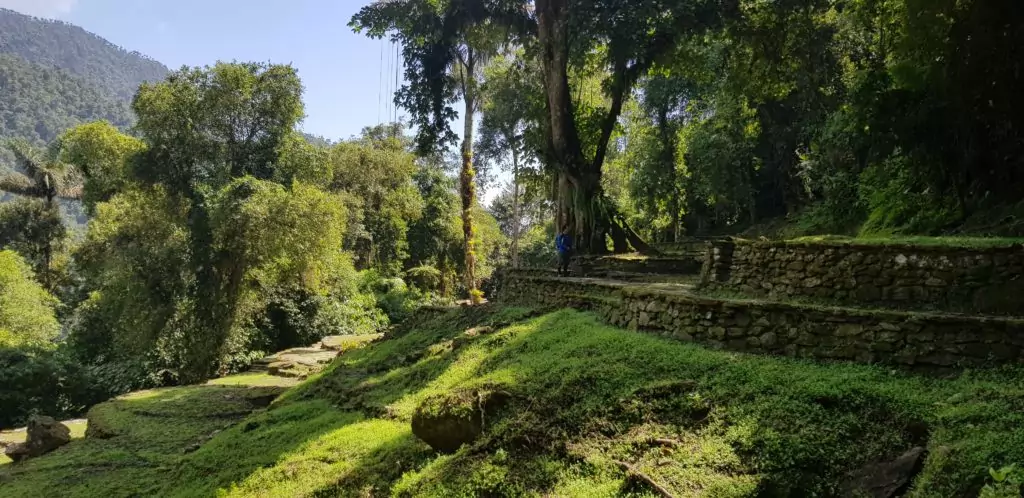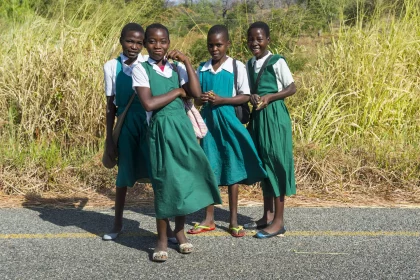How to overcome borders

Moving away from my homeland to pursue my dreams in Berlin made me not only realize what kind of borders separate Colombia from Germany. I also discovered invisible walls dividing my country internally.
It might come across as irrational that Colombians seem prouder of their home than people from first world countries, but there´s a simple reason why. Colombia has had a bad reputation of violence, corruption and drug dealing for years. Yet, there is so much more that represents us and makes us honoured to be part of our nation. Colombia has suffered much, its people are tired and strive for change in order to show the world a better image of their country. We are proud, because we are classified as earth’s most biodiverse country by area. We are proud, because in 2016 we were able to sign the peace agreement with the main guerrilla group that brought us so much pain. And we are proud, because Colombians, depite all the bad, are still willing to move forward.
I hope that at some point Colombia’s society will also become a melting pot. So far, though, it doesn’t seem like it. Colombia has one of the highest wealth-inequality indexes worldwide. It´s like having two extremely different worlds in one place. In Bogotá, the place I come from, the city is actually separated in two. People that live in the north are from high social strata and people from the south are considered of lower social status. Luckily, I was born into a family that was able to provide the necessary resources. I enjoyed a good education and opportunities. But I never stepped out of the so-called “bubble” to see other people’s misery. I always listened to the news and heard stories of people dying of hunger or living in the worst conditions possible, but it was hard to believe, since I never encountered them in ‘’my own Colombia’’. There has always been an invisible wall that inhibits interaction between those diverse social groups.
Even more different: Germany
It has always amused me how, within a few hours in an airplane, one can travel continents and be in a completely different surrounding. When I leave Colombia for Germany or the other way around, the cultural shock is still very captivating. I usually do this trip once or twice a year. Both countries are contrasting in every single way one looks at them: different languages, different climates and landscapes. But for me one of the biggest distinctions is the mindset of the people. For example, Colombians adjust more easily to good and bad circumstances. They don’t necessarily expect the best. They are used to a lack of efficiency and compromise. Not having high expectations allows one to come to terms with the given conditions. Germans, on the other hand, tend to complain more and accept nothing but the best from situations, I think. They form a society that is able to provide them with a certain quality of life, where things usually work according to the plan. I thought, I would get used to the radical change in this regard, but the truth is, it might forever take me a while to accommodate myself to the new environment after landing in one place. Returning to my country is also eye opening, as I grow older and more mature in Berlin. While living here, I forget the inequality that predominates my native society, something that cannot be found in Germany. But this fact also taught me to step out of the “bubble” and focus more on the problems that have a grip on Colombia.
Leaving behind I all knew
So, culture distinguishes both countries from each other a lot regarding mentality, beliefs and traditions. There, disorganization and bad planning can be seen anywhere, unpunctuality is socially acceptable. Here, people are striving for precision and perfectionism in every aspect. (That makes the big difference why things work out in Germany that usually don’t in Colombia, I would say.) On the other hand, music, dance and gastronomy are very important for the Colombian everyday life – and typical. All these factors combined with the good weather affect the perception and mood of the society in a positive way: Colombians tend to turn mundane situations into celebrations whenever they can and share their traditions with each other. It is quite a challenge to leave all that behind and to try to assimilate with the folklore here in Germany.
But when I had the opportunity to move to Berlin, I went. Because, I figured, I wouldn’t be able to grow enough to achieve my own goals in a place where things hardly ever change on a personal level. Living my daily life in a country that is so different from what I was used to gives me a sense of who I am and can be. Now, every time I return home, I do it with a roller-coaster of emotions in me. I feel nostalgic, but at the same time distant from everything I knew. At the end, I understand that I’m also not the person I used to be when I lived there. This realization makes me feel very estranged. And I do wonder: Would I still fit in Colombia or not?
Lastly, language has also always represented a boundary for me. It’s an odd feeling to be limited by words. Especially, since I’ve always felt like my personality changes depending on the language I am speaking. Luckily, when I arrived, I already knew some German and thought, it would be an opportunity to improve it for I’ve never felt confident while speaking or writing it. As chance would have it, Berlin is such an international city, I ended up improving my English instead – and experiencing an instant connection to people who also speak Spanish.

